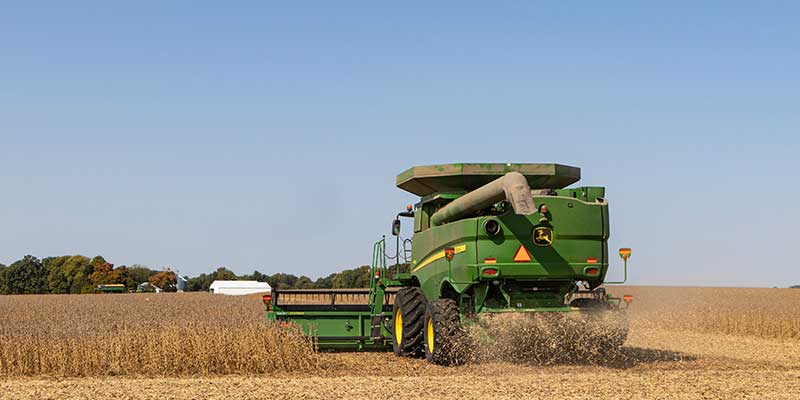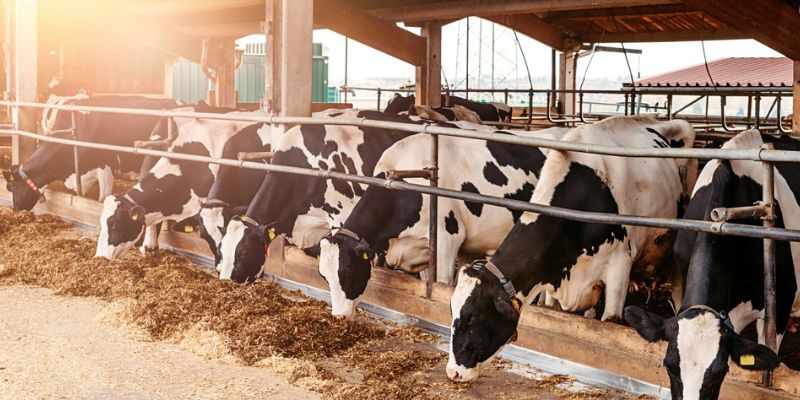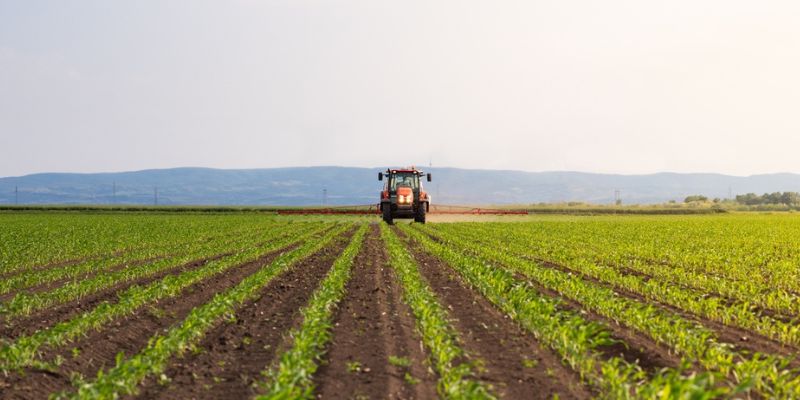Securing financing for an agricultural venture can be hard, especially if you’re unsure whether you need a farm or ranch loan. While ranch and farm loans fall under agricultural financing, they cater to different operations and needs.
Understanding their distinctions will help you choose the right loan for your situation. Our comprehensive guide will explain farm and ranch loans, highlight their differences, and how to finance a farm or ranch purchase.

What Is a Farm Loan?
A farm loan is a financial product designed to support farming operations. This farmer’s loan is tailored to fund various agricultural needs, from purchasing land to buying equipment or seed. Farm loans provide general capital covering a wide range of farming expenses. For example, you can use these loans to buy a farm, expand, invest in tractors or irrigation systems, purchase seed and fertilizer, make repairs to barns or silos, hire farm labor, or even keep things running during a tough season. In other words, a farm loan is a multi-purpose financing tool for crop growers and other agricultural producers.

What Is a Ranch Loan?
A ranch loan is a loan geared toward ranching operations, businesses primarily focused on raising livestock such as cattle, horses, or sheep. In essence, a ranch loan is the counterpart to a farm loan for ranchers. It helps finance the unique needs of running a ranch, including purchasing ranch land, buying livestock, improving grazing facilities, buying feed, and maintaining ranch equipment. Ranching often requires large acreage for grazing, and ranch loans make it possible to acquire and develop this land for raising animals.

Key Differences Between Farm Loans and Ranch Loans
- Type of Operation: A farm typically focuses on cultivating crops, whereas a ranch is dedicated to raising livestock. In other words, a farmer’s primary concern is planting and harvesting, while a rancher’s is breeding and grazing animals.
- Land Use and Size: Farms and ranches use land differently. Farmland is often arable land with fertile soil for growing crops, and it may be smaller in acreage but intensively cultivated. Ranch land tends to be more expensive since grazing animals need much space.
- Loan Purpose and Expenses: Both farm and ranch loans can fund land purchases and operational costs, but the specific expenses they cover often reflect the operation’s focus. A farm loan might be used for expenses like tractors, combines, seed, fertilizer, irrigation systems, and crop insurance. A ranch loan, on the other hand, will more likely be used for buying livestock, fencing, barns or corrals, feed, and veterinary services.
- Income and Repayment Cycles: The cash flow pattern for farms versus ranches can differ, affecting loan repayment preferences. Farms often have seasonal income, whereas ranches may have more continuous operations. Lenders experienced in agriculture accommodate these cycles by offering repayment schedules aligned with production cycles, such as annual payment plans timed after harvest or after livestock sales.
- Underwriting Considerations: When you apply for a farm loan, the lender will likely evaluate your crop plans, expected yield, crop insurance, and market prices for your produce. For a ranch loan, the lender will look at your herd size, breeding program, and the carrying capacity of your ranch land.

Choosing the Right Lender for Your Farm or Ranch Loan
Whether you pursue a farm or ranch loan, choosing the right lender or financing partner is one of the most critical decisions. Agricultural loans are a specialized area of finance, and working with an experienced lender can save you time, money, and hassle. Here’s why it matters and how Janus Ag Finance can help:
Competitive Rates and Flexible Terms
A good farm/ranch lender will offer loan products designed for the ag sector. At Janus Ag Finance, for instance, farm and ranch real estate loans come with no prepayment penalties and can have amortization periods as long as 30 years. You can even choose payment schedules that align with your cash flow.
These borrower-friendly features are possible because specialized lenders can access unique funding sources. Janus works closely with Farmer Mac and other financial partners to secure the best rates available in the U.S. for their clients. In practical terms, this could mean a lower interest rate and more flexible repayment options on your loan.
Personalized Service
Financing a farm or ranch isn’t a one-size-fits-all scenario. Every operation has unique goals, whether a family farm looking to pass to the next generation or a ranch expanding into new pasture. The right lender will take the time to understand your business and customize the loan accordingly. Janus Ag Finance prides itself on a personal approach, structuring loans that meet each client’s needs and growth plans.
Your Next Step
If you’re still unsure whether to apply for a farm or ranch loan or want professional guidance on the financing process, contact an agricultural lending specialist. Janus Ag Finance offers free consultations to help you explore your options and determine the best path forward.
With decades of experience and a deep commitment to supporting the ag community, our team is ready to answer your questions and assist with your loan application from start to finish.
Ready to Launch Your Farm or Ranch Dream?
Understanding the difference between ranch and farm loans is the first step toward making your agricultural dreams a reality. Now, take the next step by securing the right financing. Janus Ag Finance is here to help, whether you’re a crop farmer needing capital for the next planting season or an aspiring rancher looking to buy your first herd and rangeland. We offer whole farm and ranch loan solutions and will tailor each to your needs. Don’t let confusion or uncertainty hold you back from your goals.
Get the right loan, and you’ll be well on your way to growing your agricultural success story!

